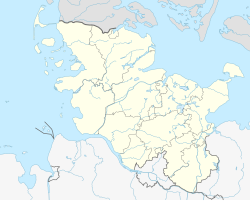
Segeberg is a district in Schleswig-Holstein, Germany. It is bounded by the districts of Pinneberg, Steinburg and Rendsburg-Eckernförde, the city of Neumünster, the districts of Plön, Ostholstein and Stormarn, and the city state of Hamburg.
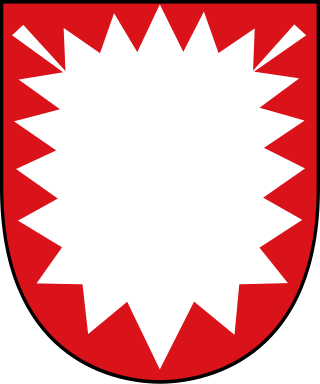
Holstein is the region between the rivers Elbe and Eider. It is the southern half of Schleswig-Holstein, the northernmost state of Germany.
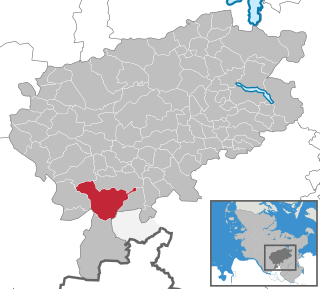
Henstedt-Ulzburg is a municipality in the district of Segeberg, in Schleswig-Holstein, Germany.
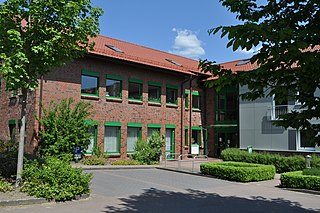
Itzstedt is a municipality in the district of Segeberg, in Schleswig-Holstein, Germany. It is situated approximately 32 km northeast of Hamburg, and 17 km southwest of Bad Segeberg.

Leezen is a municipality in the district of Segeberg, in Schleswig-Holstein, Germany. It is situated approximately 40 km northeast of Hamburg, and 9 km southwest of Bad Segeberg.
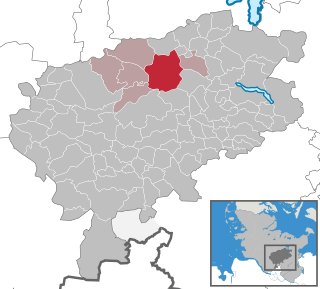
Rickling is a municipality in the district of Segeberg, in Schleswig-Holstein, Germany. It is situated approximately 15 km southeast of Neumünster.

Trave-Land is an Amt in the district of Segeberg, in Schleswig-Holstein, Germany.

Heidmühlen is a municipality in the district of Segeberg in Schleswig-Holstein, Germany. It contains the areas of Mühlenholz and Klint.
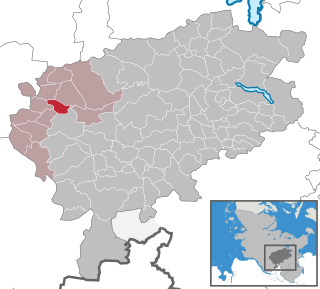
Fuhlendorf is a municipality in the district of Segeberg, in Schleswig-Holstein, Germany. Its airfield is home to one of the five German Federal Police helicopter squadrons.

Hagen is a municipality in the district of Segeberg, in Schleswig-Holstein, Germany.

Bahrenhof is a municipality in the district of Segeberg in Schleswig-Holstein, Germany.
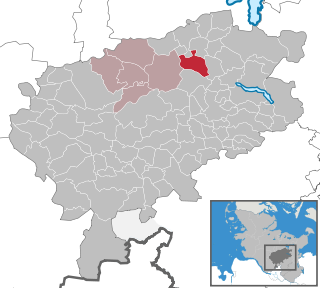
Daldorf is a municipality in the district of Segeberg, in Schleswig-Holstein, Germany.
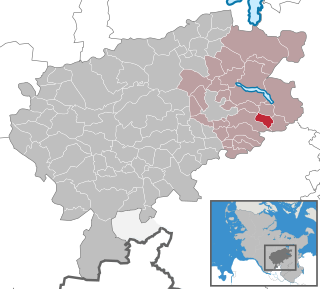
Geschendorf is a municipality in the district of Segeberg, in Schleswig-Holstein, Germany.

Glasau is a municipality in the district of Segeberg, in Schleswig-Holstein, Germany. It is named after the estate and the manor house of the same name. Sarau is the largest village in the municipality; about half of the population lives there.
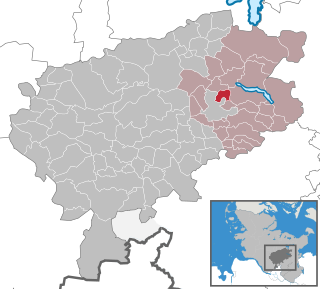
Klein Rönnau is a municipality in the district of Segeberg, in Schleswig-Holstein, Germany. On an Area of 453 acres (1.83 km2) live about 1600 people. There are three car workshops, several doctors, supermarkets, and numerous clubs for riding, dog training, and the sportsclub in Klein Rönnau. Most of the inhabitants are Protestants or non-religious.

Krems II is a municipality in the district of Segeberg, in Schleswig-Holstein, Germany. The Roman numeral II in the municipality's name served to distinguish it from the nearby Krems I, which is now part of Leezen.

Stipsdorf is a municipality in the district of Segeberg, in Schleswig-Holstein, Germany.

Tarbek is a municipality in the district of Segeberg, in Schleswig-Holstein, Germany. It is part of the Amt Bornhöved.
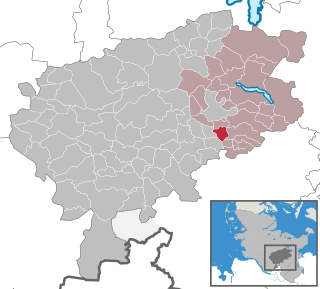
Traventhal is a municipality in the district of Segeberg, in Schleswig-Holstein, Germany. It gave name to the Peace of Travendal treaty signed there in 1700.

Wakendorf I is a municipality in the district of Segeberg, in Schleswig-Holstein, Germany. The name "Wakendorf I" was given in Prussian times, in order to distinguish it from another municipality 20 km to the southwest, also called Wakendorf.



